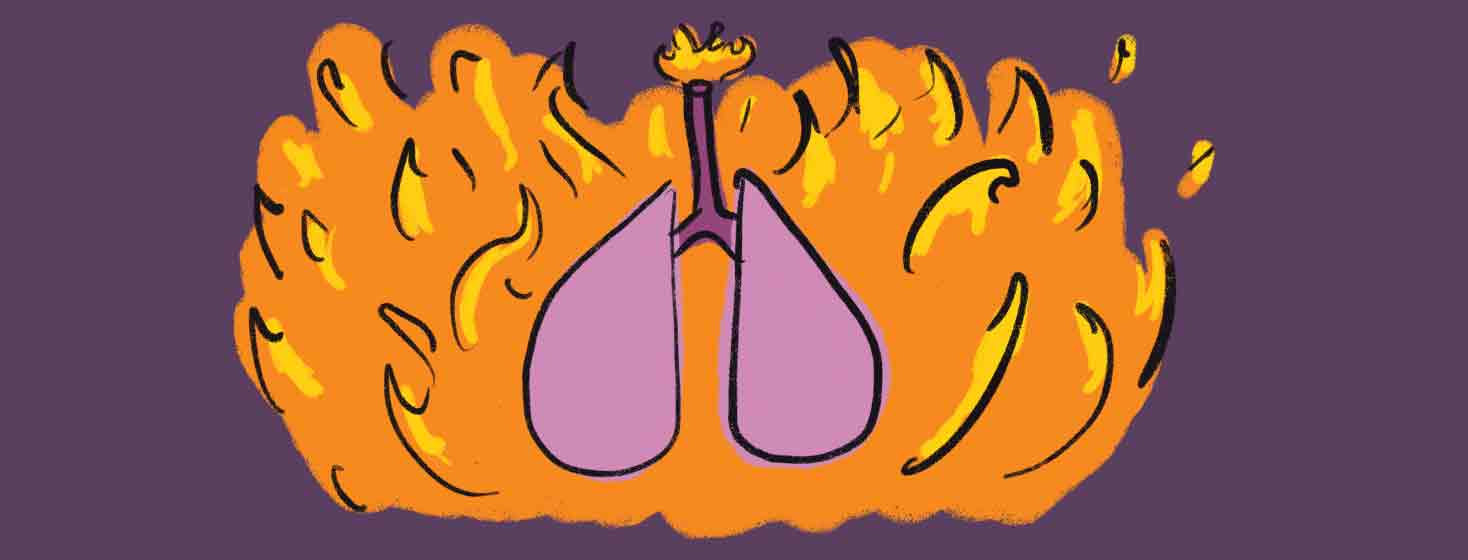What Are COPD Flare-Ups?
The term “COPD flare-up” gets bandied around quite a bit. So, what exactly are flare-ups anyway? What causes them? Here’s what to know.
According to Oxford, a baseline is "a minimum or starting point used for comparisons.” How do you feel on good COPD days? What is your normal activity level? This is your baseline. When you have flare-ups, the goal is to get you back to your baseline. That’s when doctors know you’re doing better.
What is a flare-up?
When your symptoms suddenly worsen, it’s called a flare-up. It may also be called by its official name: COPD exacerbation.
You feel too short of breath to do your normal, baseline activities. For instance, you are unable to brush your teeth. You are unable to walk to the bathroom. You need to rest often to catch your breath when walking. You need to lean on things, at least more so than normal, when walking. You are talking in short, choppy sentences. You're feeling your COPD symptoms.
Taking action during a flare
Your doctor may work with you on creating a COPD Action/ Management Plan. These are plans printed on a single sheet of paper. They are put in an easy to find place, like the refrigerator door. They can help you decide what actions to take when you experience symptoms. One action may be to call your doctor. Another may be to call 911. You can view a sample plan here.
Preventing flare-ups
Your goal is to prevent them. Your doctor can help you do this. A neat thing about COPD is it talks to you. It tells you early on that something is wrong. It does this by showing what we call early warning signs and symptoms. Your doctor can help you learn them. Learning them is often considered part of a COPD Action Plan. When you experience them, swift actions can prevent COPD flare-ups.
A common early-earning symptom is feeling more short of breath than your baseline. A common early-warning sign is coughing more than you do when at your baseline. You may feel symptoms and take appropriate actions. Others around you may see your signs and tell you what they see. They may help you decide what to do based on your plan. Check out my post, “8 Steps when to seek help.”
Flare causes and triggers
Three common causes include
- Inflammation. COPD airways tend to always inflamed to some degree. They are extra sensitive to COPD triggers. They are easily irritated. These triggers may cause this inflammation to worsen. This irritates airway cells, triggering flare-ups. Common triggers include the common cold or allergens like dust mites and pollen.
- Pneumonia. Many people with COPD have extra mucus in their airways. They have trouble coughing it up. This can create a breeding ground for some germs. A common infection in COPD is pneumonia. It can wipe you out. It can make you feel weak. It can make you feel short of breath.
- Heart Failure. Sometimes the heart poops out. This happens after years of pumping blood through diseased lungs. It may become too weak to pump blood through them. Fluid may get back up into your lungs. A common early warning sign here is increased swelling in your feet or ankles.
- Other. There are different things that may trigger flare-ups. Sometimes it's difficult to know the exact cause. Sometimes it's a combination of things. For this reason, doctors may treat you for all three of the above. Further testing (such as lab draws) may help them more accurately pinpoint the cause. Once the results come in, doctors may adjust your treatment. This is all in an effort to help you breathe easier.
So, flare-ups are when your symptoms get worse. The best way to prevent them is by working with your doctor. The goal of any COPD treatment regimen is to prevent them, or at least make them less severe when they do occur. But, sometimes they are inevitable, requiring swift actions. So, this is why it’s so important to be prepared.

Join the conversation